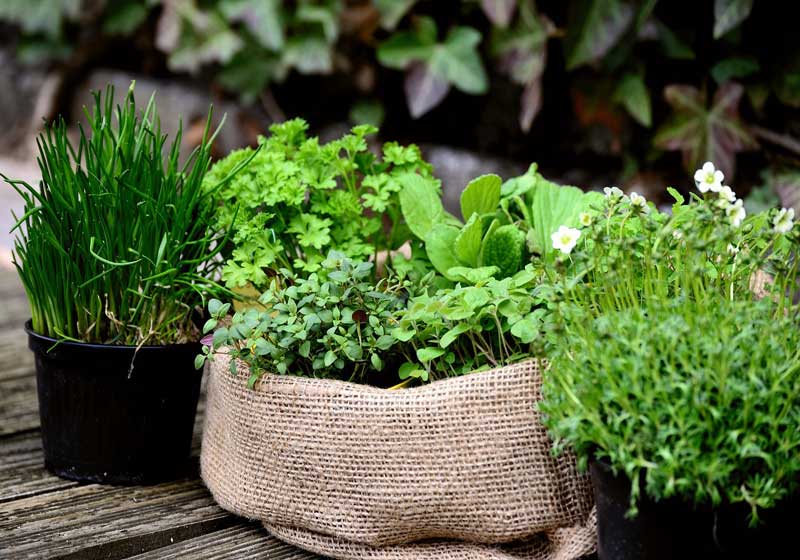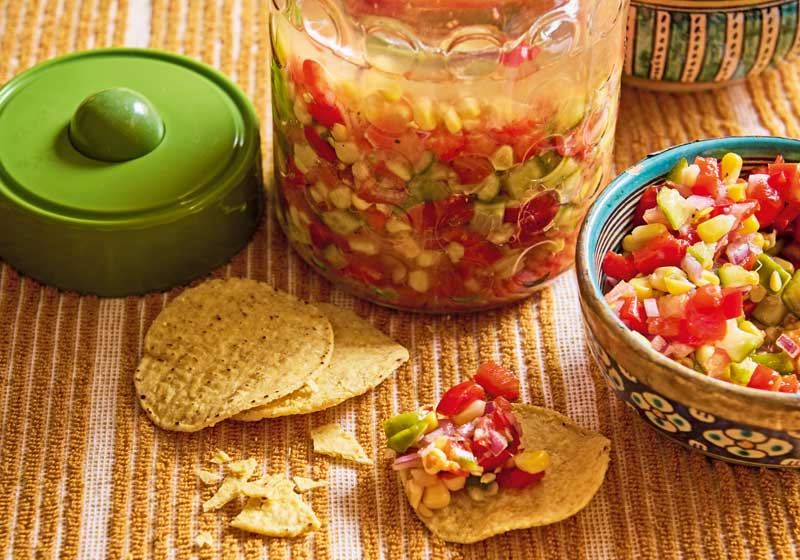By Marie-Antoinette Issa.
In the midst of a cost-of-living crisis, sustainable eating can fall further down the ladder of factors that influence your weekly grocery shop. However, you don’t need to splurge on high-end organic brands or gourmet health foods to make eco-friendly choices.
In fact, with a little creativity, some smart planning and these seven practical tips, you can prioritise ethical eating without completely blowing the budget:
Buy in Bulk and Save

One of the easiest ways to save money and reduce packaging waste is to buy in bulk. Staples like rice, beans, oats, pasta and nuts are often much cheaper when purchased in larger quantities.
Many supermarkets and zero-waste stores offer bulk bins where you can fill your own reusable containers. Not only does this reduce single-use plastic, but it also allows you to buy just the amount you need, avoiding excess that might go to waste.
Grow Your Own Herbs and Veggies
Growing your own food is one of the most cost-effective ways to eat sustainably. Even if you don’t have a garden, you can grow herbs like basil, parsley and mint in small pots on a windowsill or balcony.
Many vegetables, such as spring onions, lettuce and celery, can be regrown from scraps by placing their roots in water. If you have a bit more space, consider planting easy-to-grow vegetables like tomatoes, zucchinis or carrots.

Not only does growing your own food cut down on costs, but it also eliminates the carbon footprint of transporting produce to your local supermarket.
Shop Local and Seasonal
Buying seasonal produce from local farmers’ markets is a win-win for your wallet and the planet. Seasonal fruits and vegetables are typically more affordable because they are abundant and don’t require expensive storage or long-distance transport.
At farmers’ markets, you can often find great deals on fresh, organic produce, especially if you visit towards the end of the day when vendors are keen to sell off remaining stock. Supporting local farmers also helps strengthen your community’s economy while reducing your food’s environmental impact.

Prioritise Plant-based Meals
Incorporating more plant-based meals into your diet is not only good for the planet but also budget-friendly. Pulses like lentils, chickpeas and beans are cheap, protein-packed and versatile ingredients that can be used in soups, stews and salads.
Swapping out meat for plant-based proteins even a few times a week can significantly lower your grocery bill while reducing your carbon footprint. For example, a hearty lentil Bolognese or black bean tacos are delicious, sustainable alternatives to their meat-based counterparts.

Use Every Scrap
One of the most effective ways to eat sustainably on a budget is to make the most of what you already have. Veggie peels, stems and scraps can be turned into homemade vegetable stock. Overripe fruit can be blended into smoothies or baked into muffins.
Even stale bread can find a new purpose as croutons or breadcrumbs. By using every part of your food, you minimise waste and stretch your budget further.

Plan Your Meals
Meal planning is key to avoiding unnecessary purchases and wasted food. Take a few minutes each week to decide what meals you’ll cook, and base your shopping list on those recipes.
Check your pantry and fridge before heading to the shop to avoid buying duplicates. Planning your meals around what’s on sale or in season can also save you money. Plus, having a plan reduces the temptation to order takeaway, helping both your wallet and the planet.
Be Mindful of Packaging

Finally, opt for products with minimal or eco-friendly packaging whenever possible. Choose loose fruit and vegetables over pre-packaged ones and bring your own reusable bags, jars or containers when shopping.
Many eco-conscious brands now offer refill options for pantry staples like oil, vinegar and spices, which can be more cost-effective in the long run.








